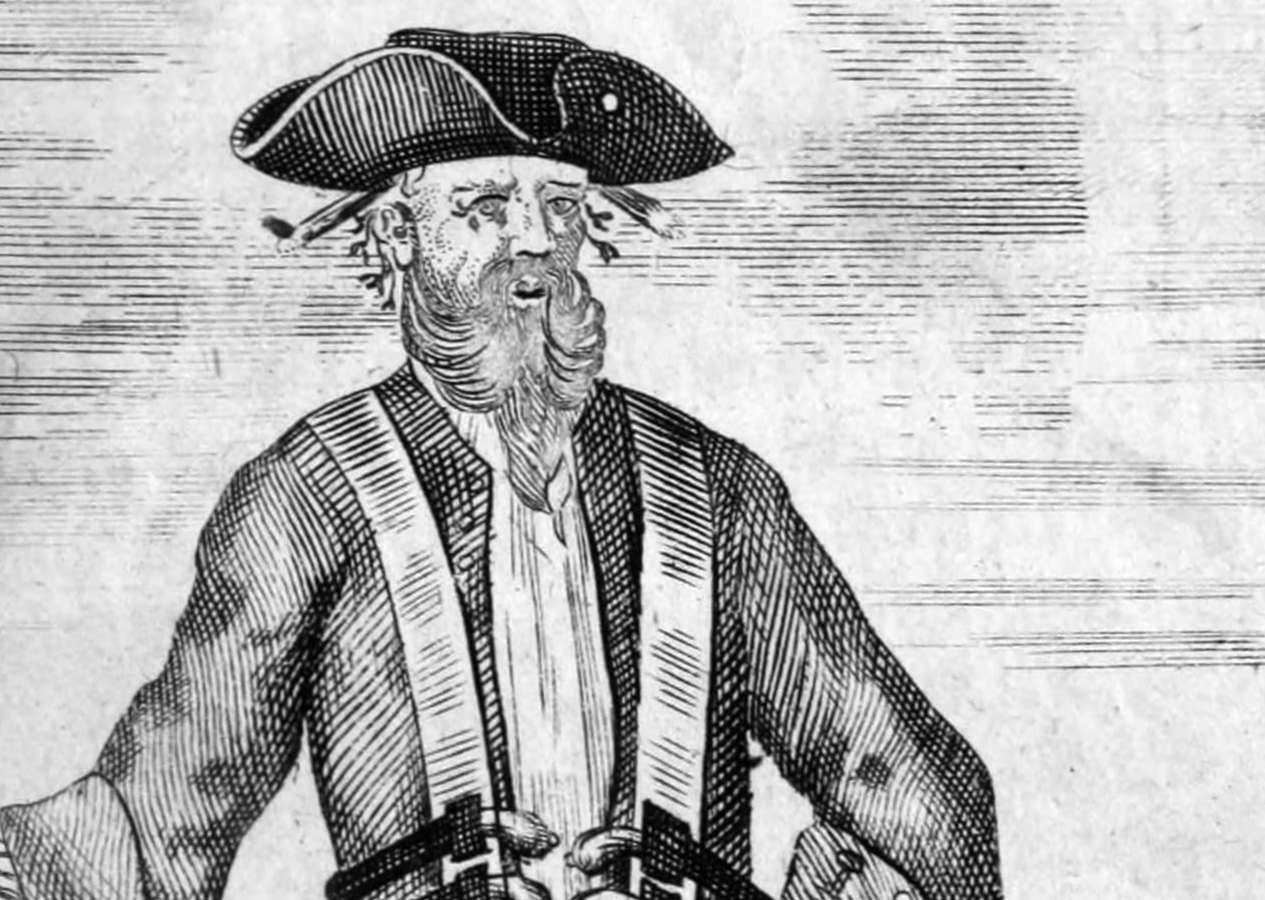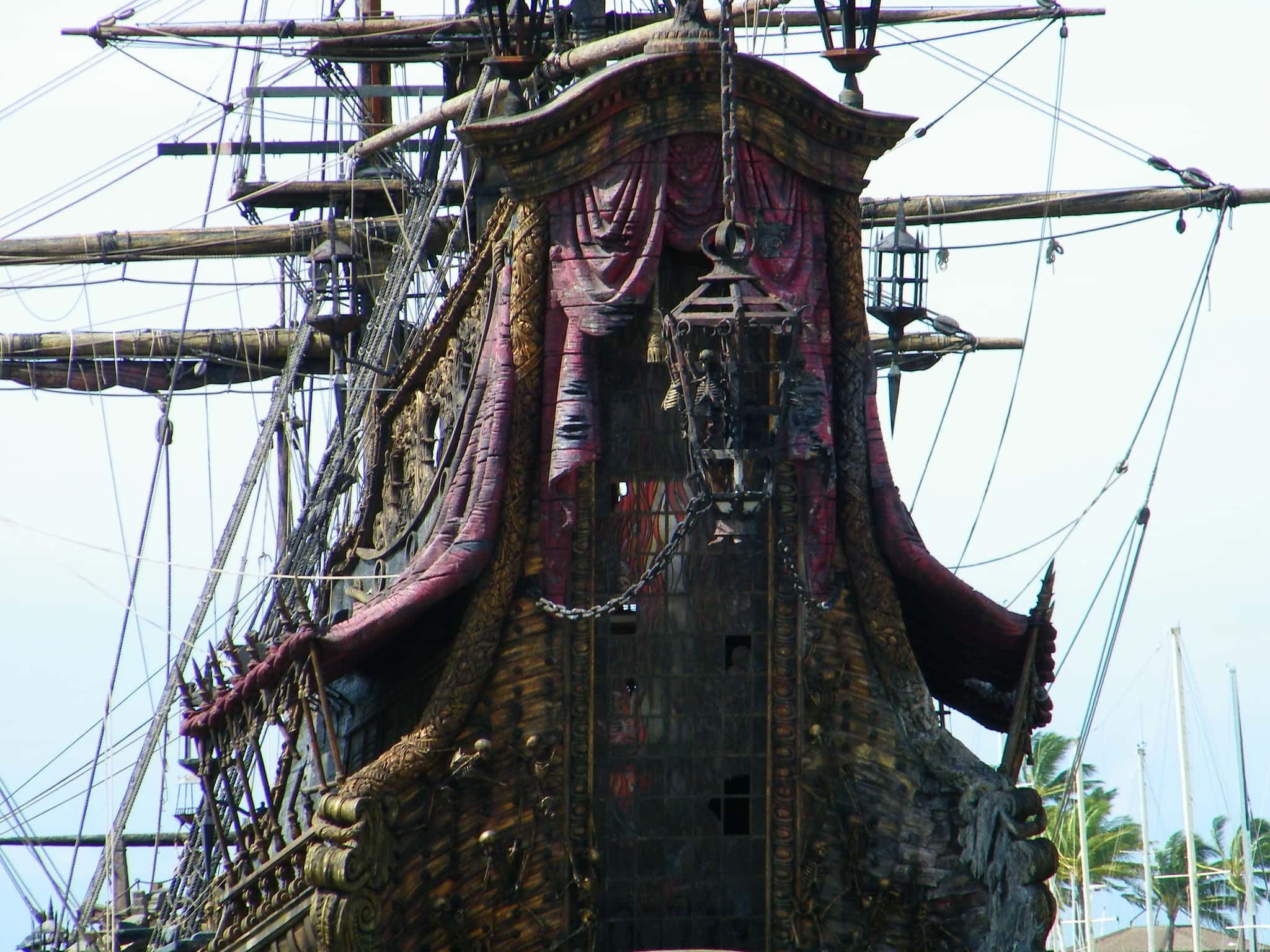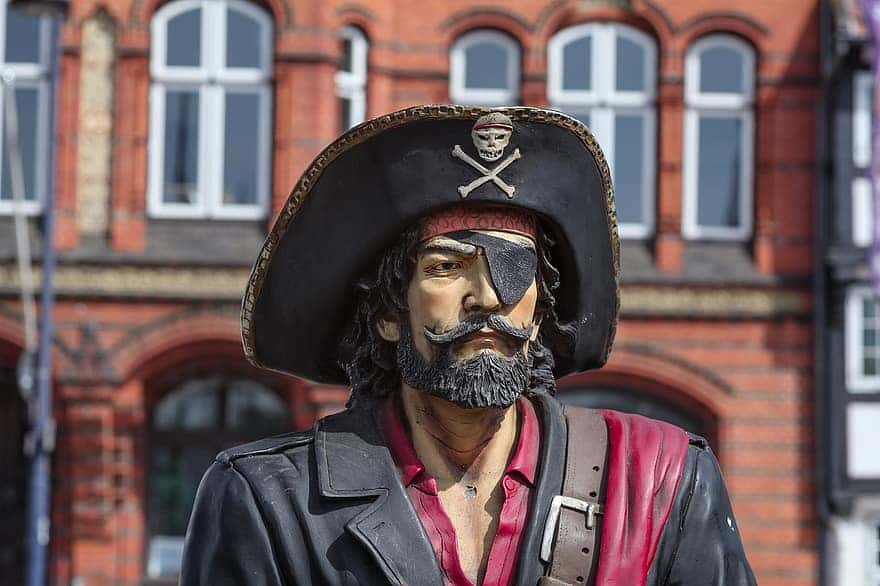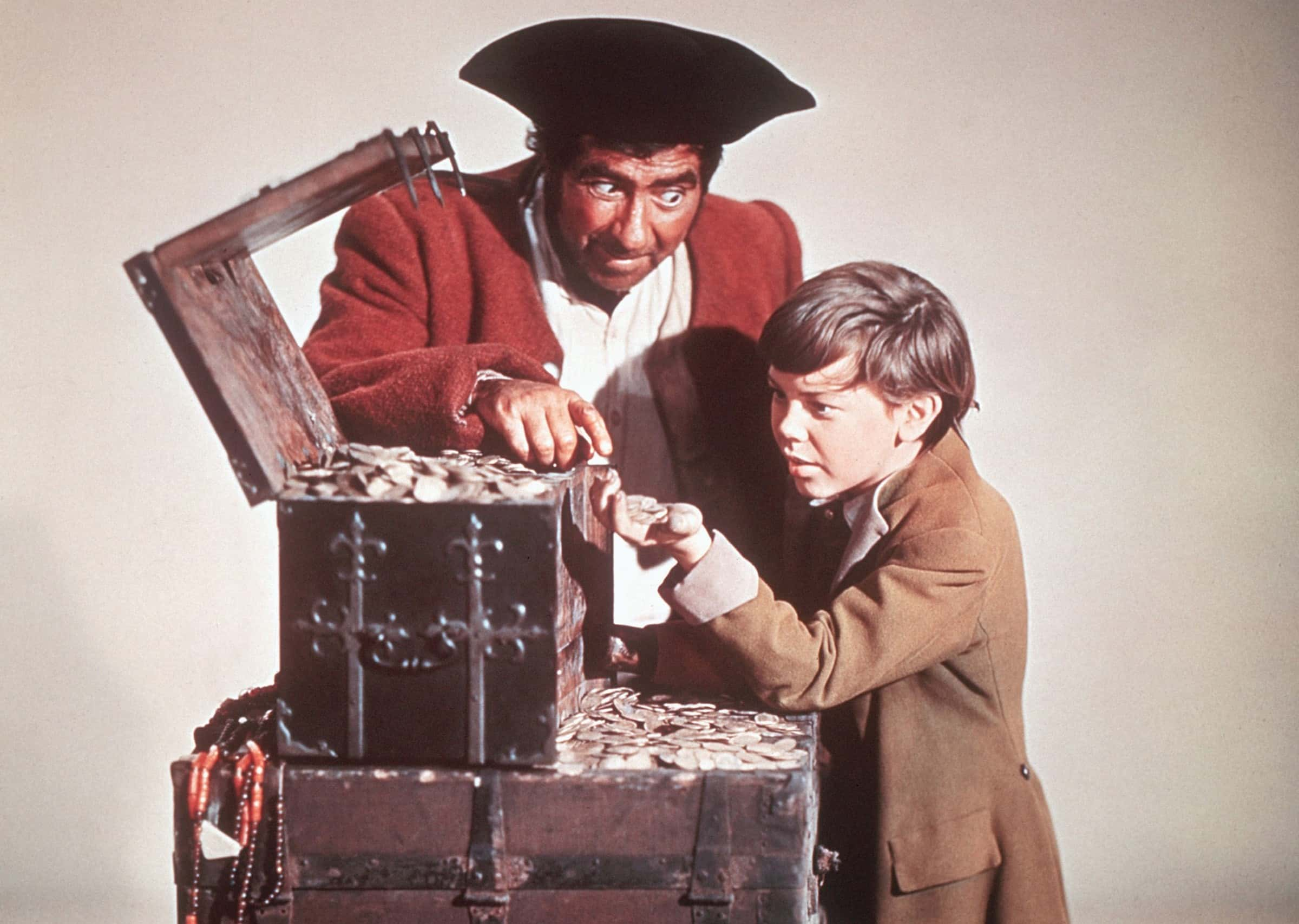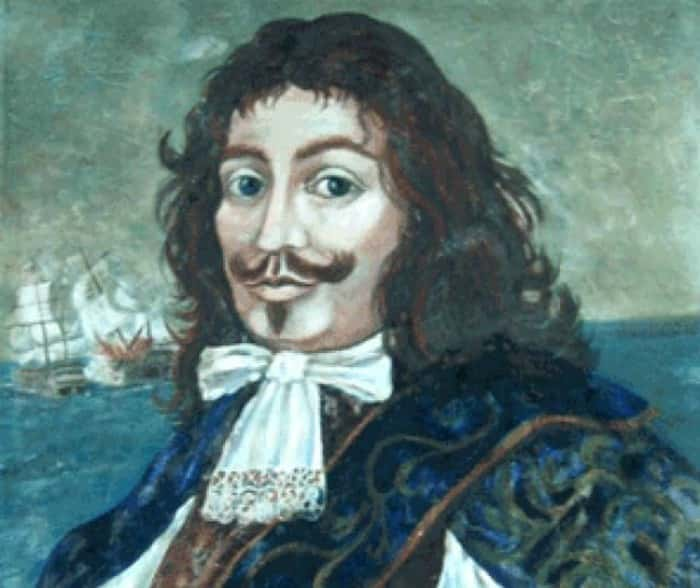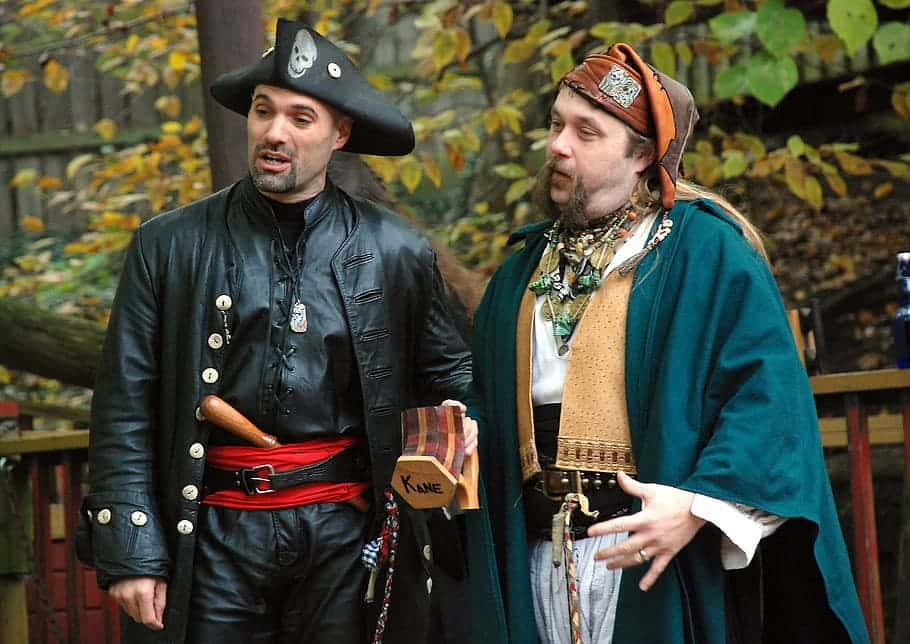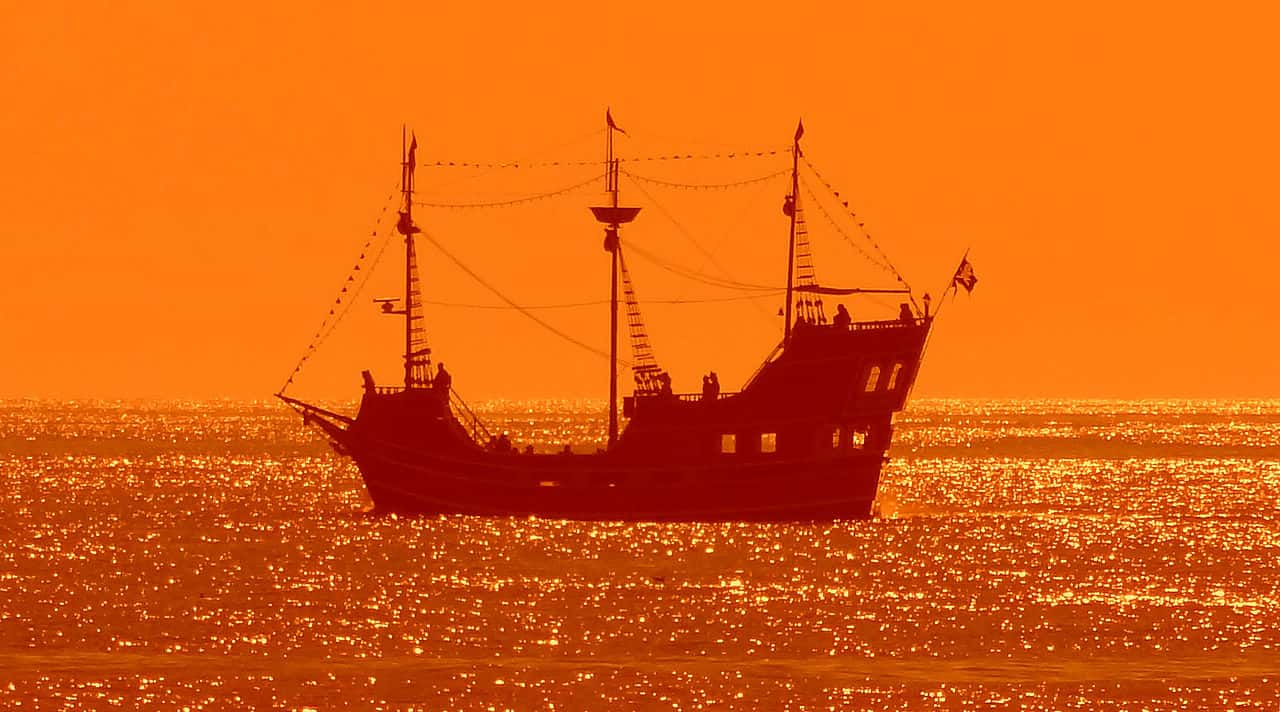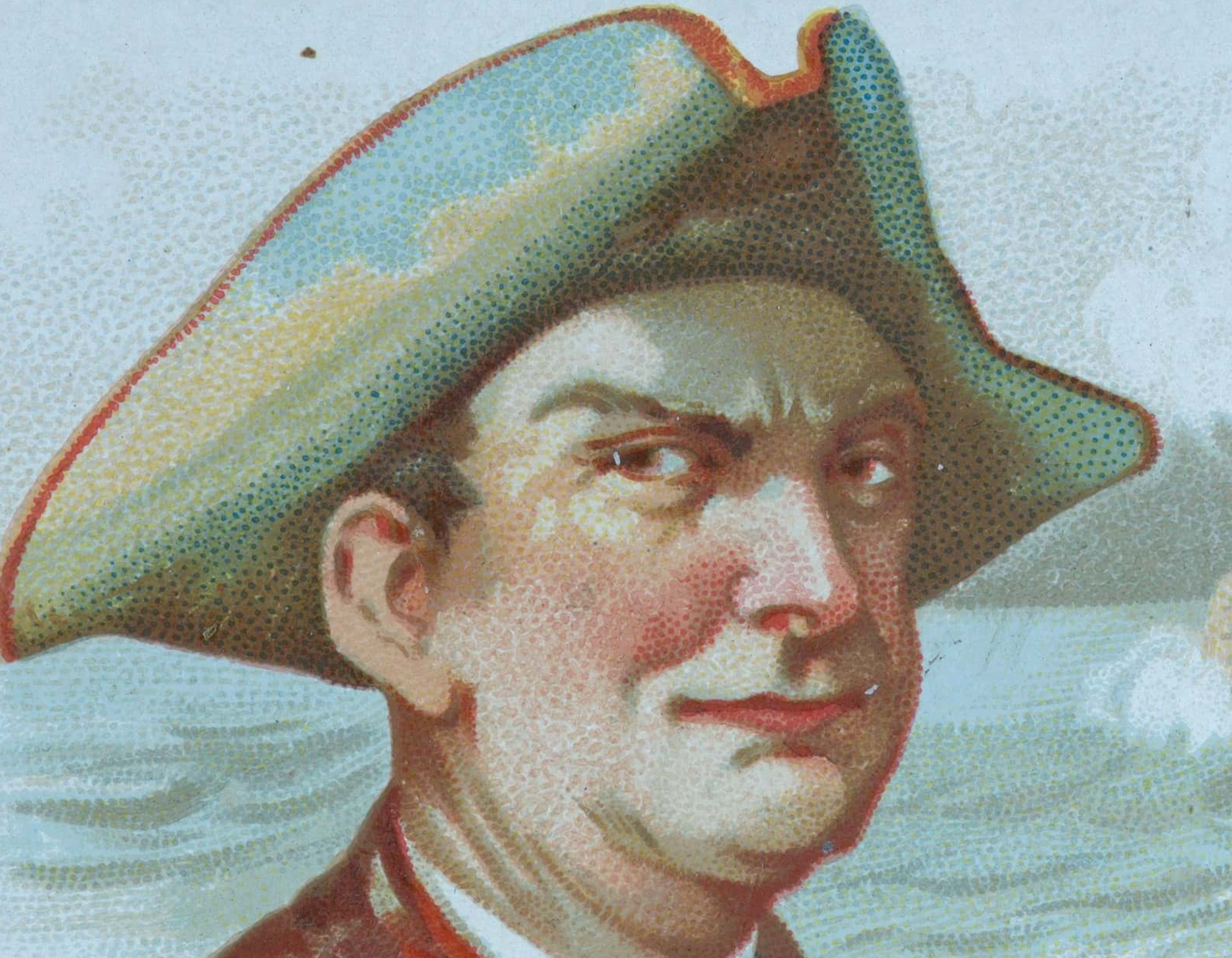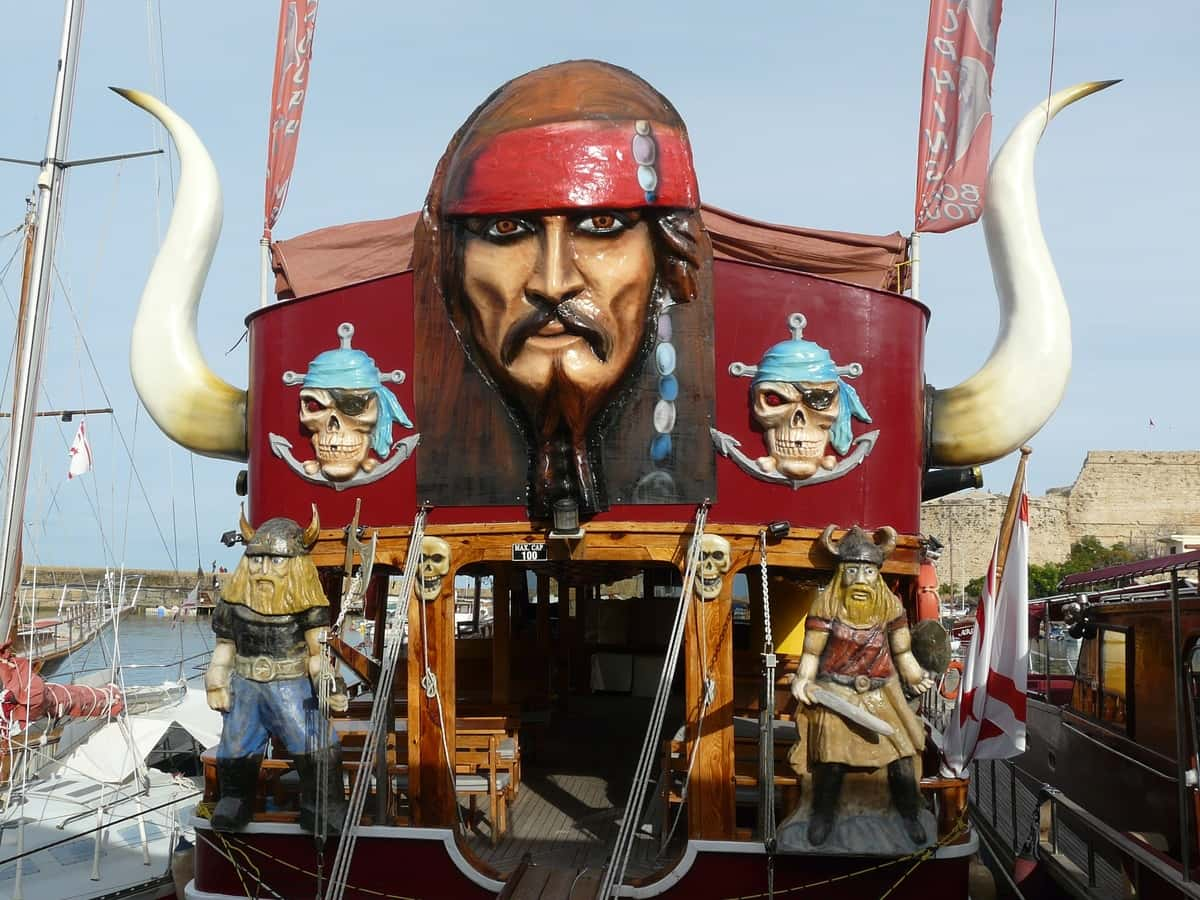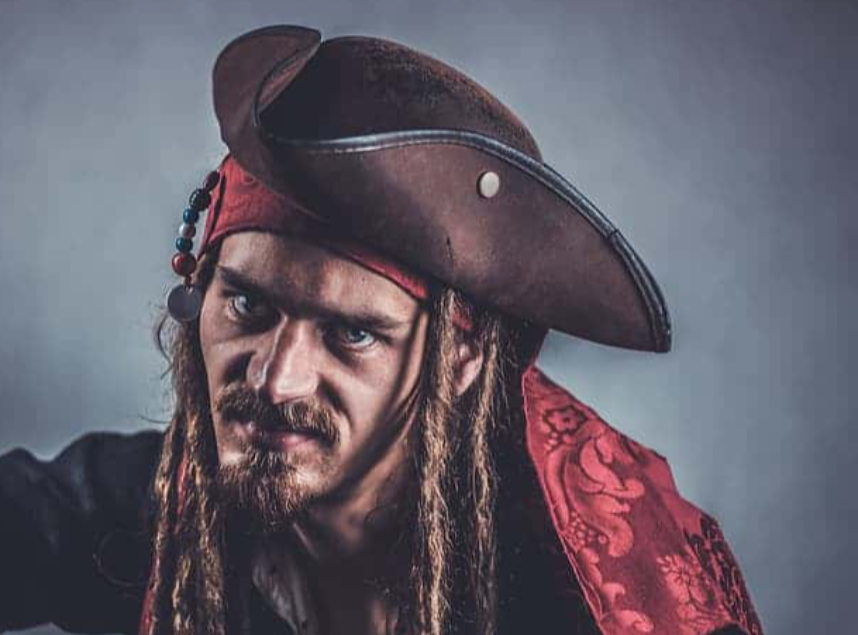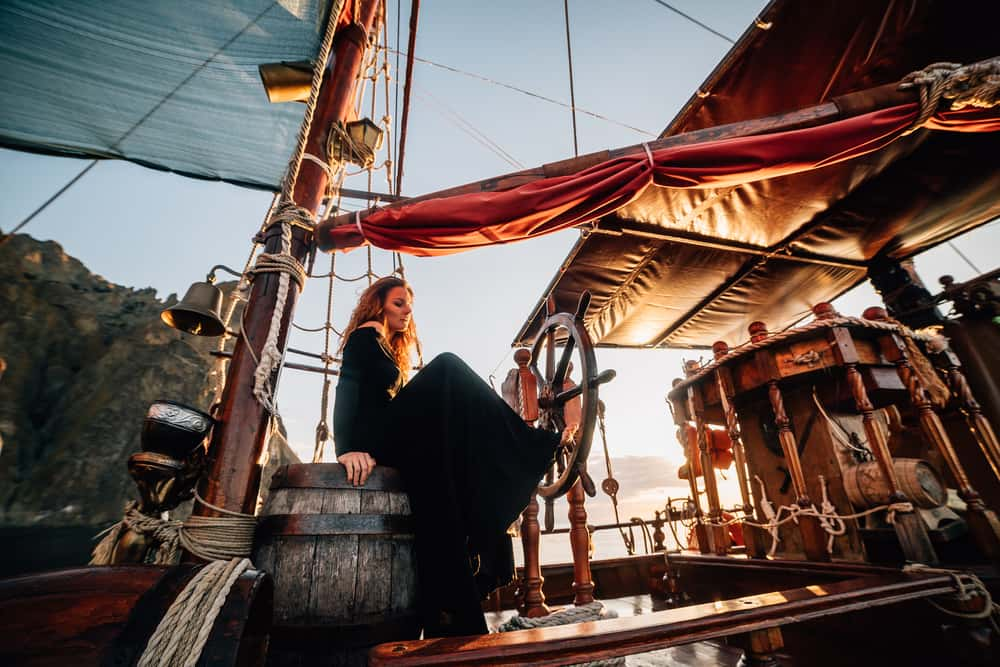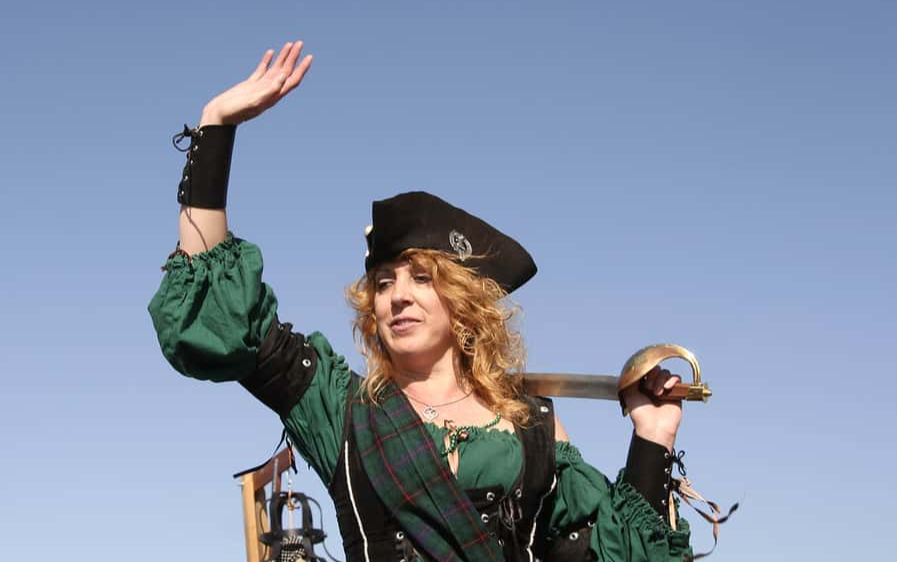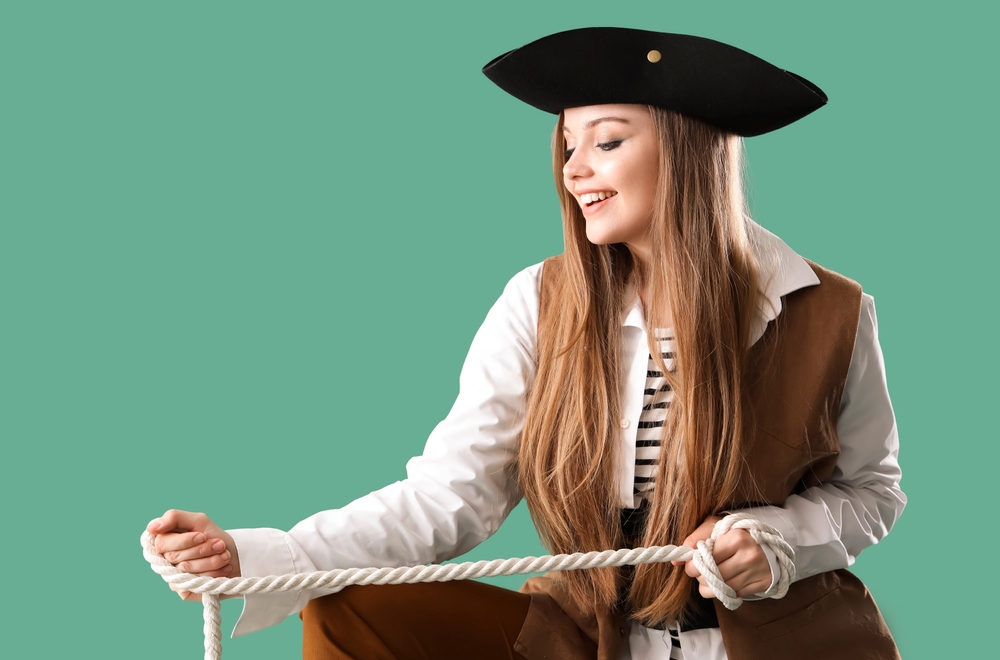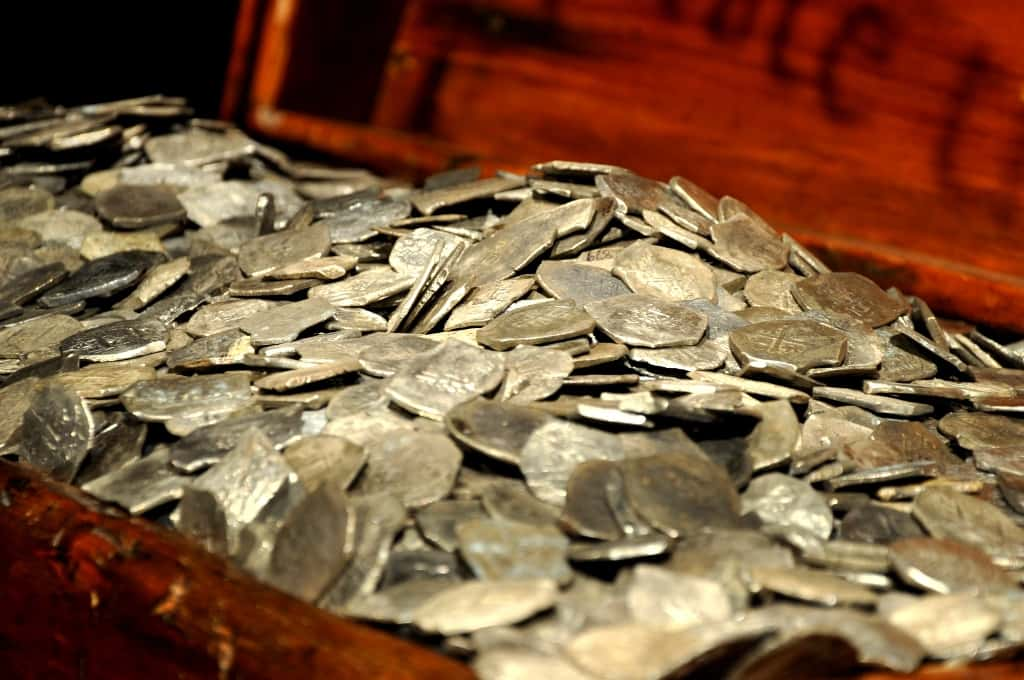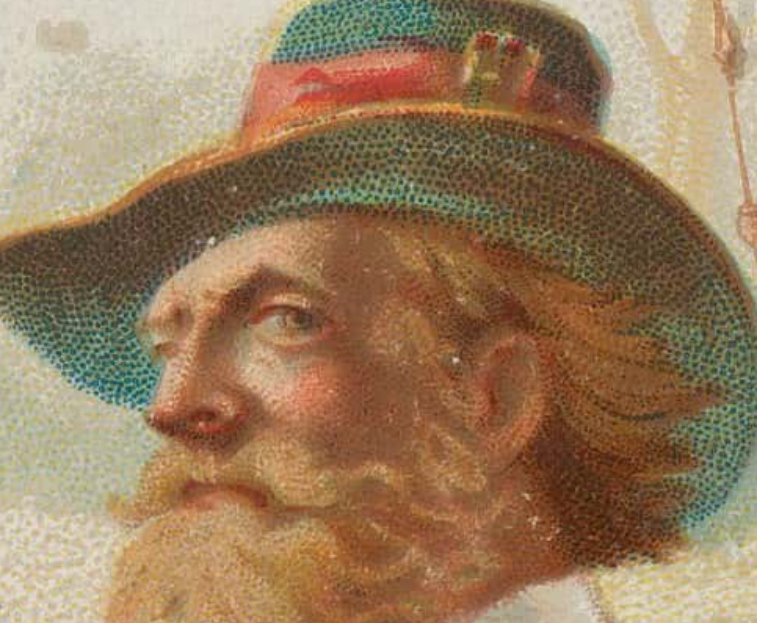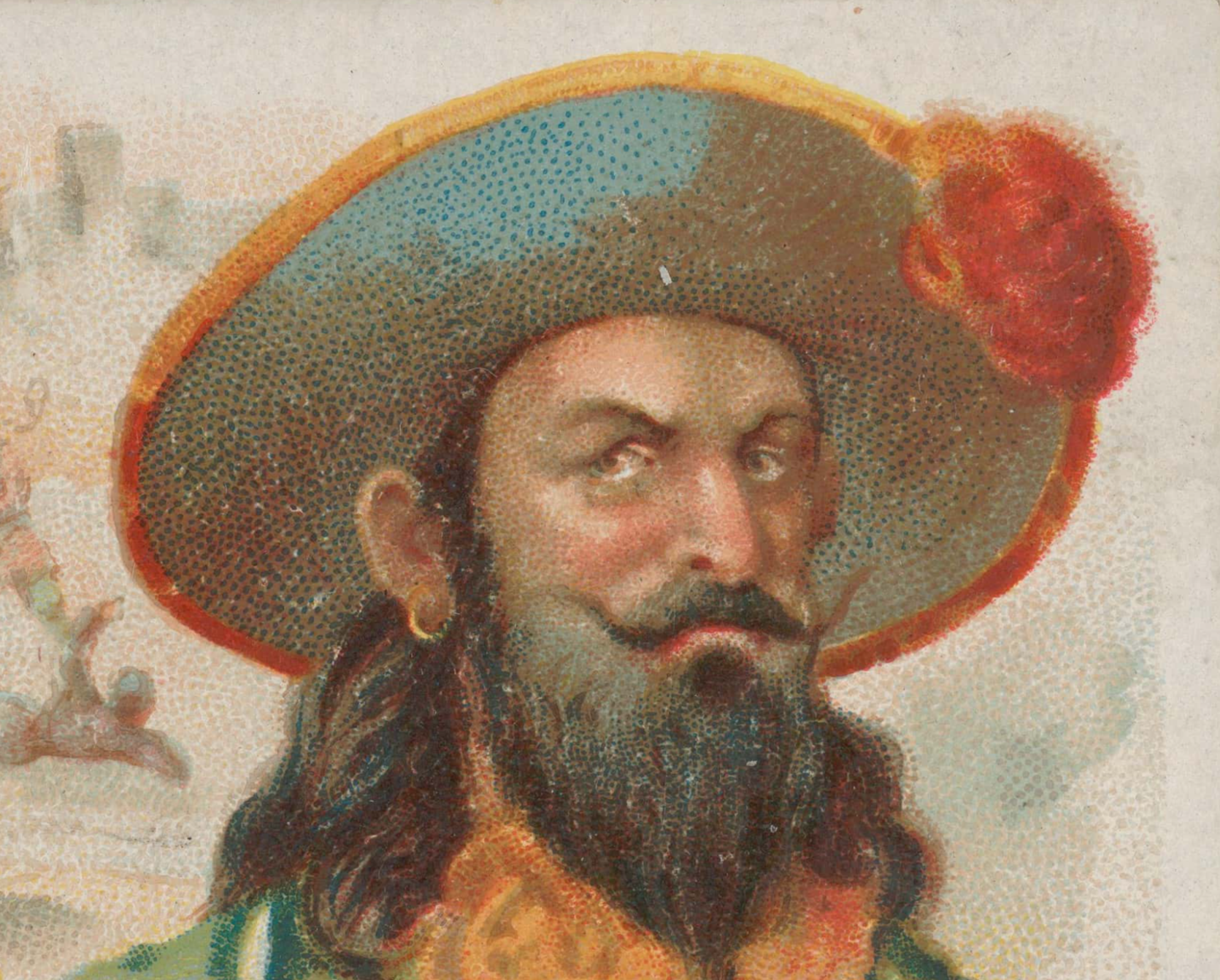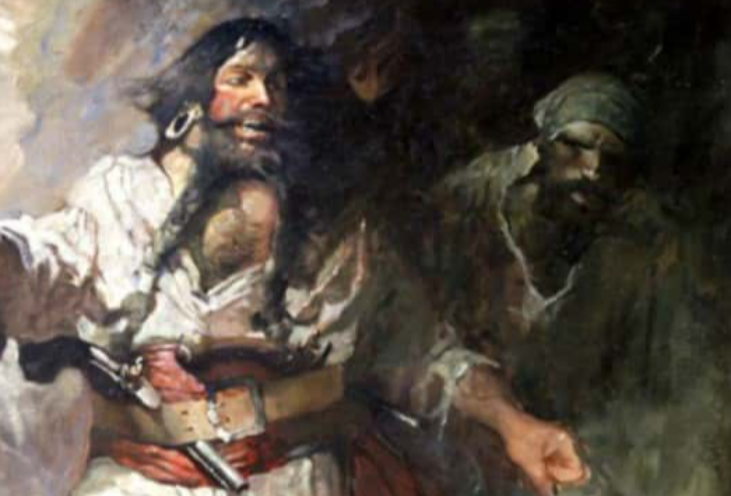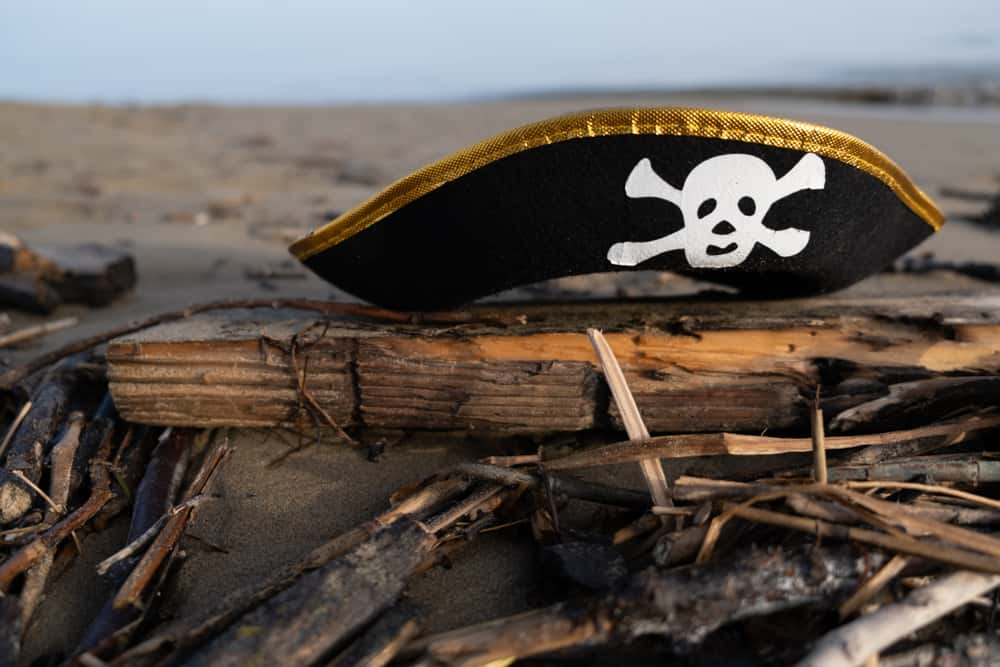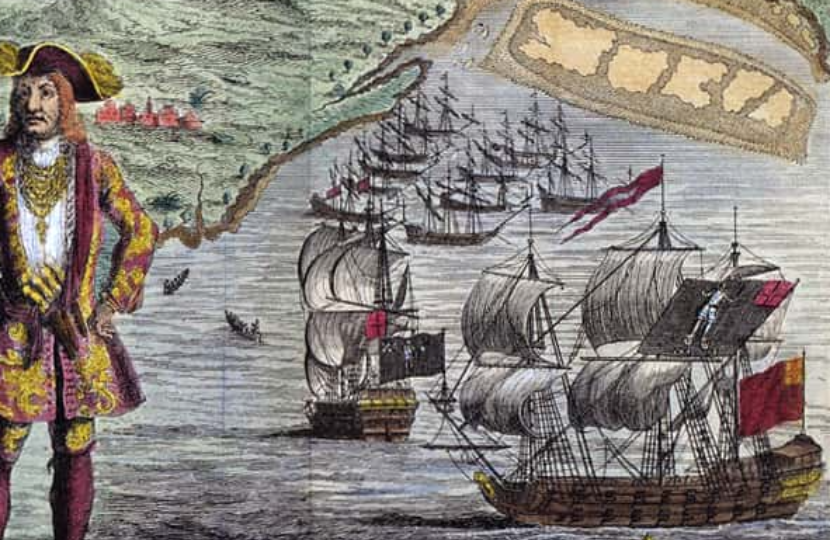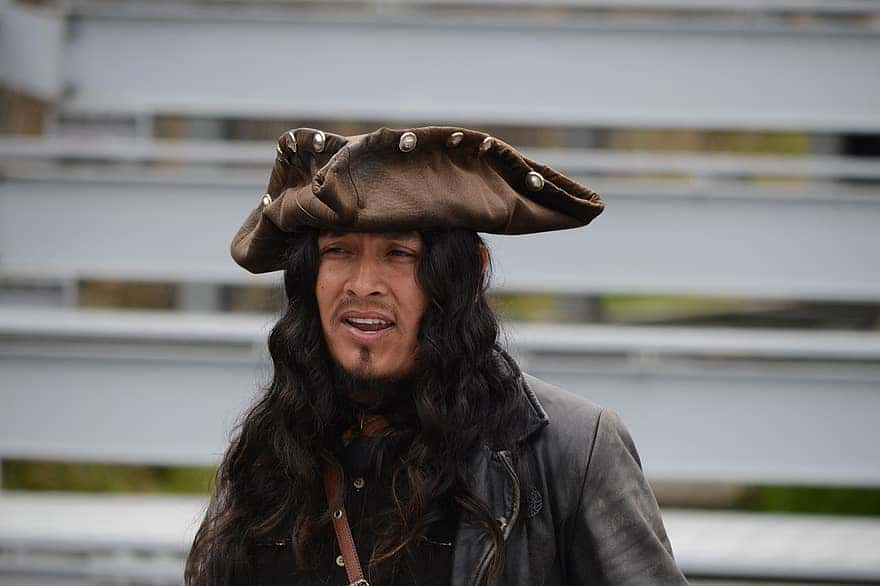The pirate life wasn’t all cool hats, treasure maps, and Johnny Depp impersonations of Keith Richards. It was dangerous and highly political work. To understand pirates, we must also understand the history of imperialism and naval conflict, which set the stage for the dangers (and riches) of swashbuckling. Whether they were private renegades or working on contract for various states, pirates came from all walks of life to inspire tales that range from the brutal to the scandalous to the downright bizarre. Shiver me timbers to these 43 facts about the real pirates who prowled Caribbean and the rest of the seven seas.
Real Pirates Of The Caribbean Facts
43. Blackbeard’s Biggest Booty Haul
In 1717, Blackbeard committed one of the largest naval hijackings in pirate history: he commandeered a 200-tonne, 160-cannon slaving vessel called La Concorde from the French Navy. He proceeded to rename it something you might recognize: Queen Anne’s Revenge.

42. Imagine the Instagram Tutorial
Blackbeard was very image-conscious, knowing how much of a pirate’s reputation rested upon visual impression. Before battle, he’d dress in all black to evoke a menacing persona, also adorning himself with extra barrels on his chest and a large captain’s hat. As a finishing touch, he’d put slow-burning fuses into his hair and beard in order to wreath himself in an ominous, demonic fog. What a look!
41. Who Doesn’t Want Their Security Deposit Back?
Pirates like Blackbeard tended to minimize their kills—outright combat could devalue the ship they were attacking, and there's no sense damaging a valuable ship when you can win fights with reputation alone.
 Black Sails (2014–2017), Starz!
Black Sails (2014–2017), Starz!
40. Sunken Bounty
In 1996, researchers finally discovered what they believe to be the wreck of Blackbeard’s Queen Anne’s Revenge off the coast of North Carolina. More than 250,000 artifacts have been recovered from the site, including gold flakes, pipe stems, and part of a sword, among other fare. The inscription on the ship's bell read “IHS Maria, año 1709,” suggesting that La Concorde was originally built in Spain or Portugal.
39. Equal Opportunity Employer
John “Calico Jack” Rackham was known for his big, bright, flamboyant wardrobe and flair, but that's not his biggest claim to fame nowadays—the 18th century pirate also had TWO female pirates on his crew: the even more infamous Anne Bonny and Mary Read.
 Black Sails (2014–2017), Starz!
Black Sails (2014–2017), Starz!
38. Raiding to Retire
Not even Canada was immune to piracy; Peter Easton was a 17th century pirate who controlled so much sea power along the Newfoundland coastline between Harbor France and Ferryland from 1611 to 1614 that no sovereign or state could overtake him. He retired to France, with two million pounds of gold, with the title of Marquis in the Duchy of Savoy.
37. Activate Night Monocle!
Pirates did actually wear eye-patches, but not because eye-loss was that big of an occupational hazard. It was because they jumped between above and below decks so often, so it made sense for them to adjust one eye for “night-vision.” One eye would be for seeing in daylight, and when they went under deck they’d simply switch their patches and use their once-covered eye to see in the dark. Pretty smart for a pirate, eh?
36. Black Flag
The black skull-and-crossbones flag was not necessarily the pirate equivalent of a “Here we Arrr!” siren. In fact, it was often the opposite: the flag meant the pirates were willing to give you safe quarter. You'd actually want to see a black flag bearing down on you—it was certainly better than the alternative...
 Black Sails (2014–2017), Starz!
Black Sails (2014–2017), Starz!
35. Red Alert!
The term “jolly roger,” which now refers to the skull and crossbones flag commonly associated with pirates, is likely derived from the French phrase, “jolie rouge,” meaning pretty red. It was this red flag (not the skull flag) which meant a pirate ship was aggressive.
 Black Sails (2014–2017), Starz!
Black Sails (2014–2017), Starz!
34. Build-a-Flag Workshop
Pirate flags came in many variations, offering unique and often humorous designs. Some flags featured uncovered men, or demons, or skeletons dancng with uncovered ladies. Let your freak flag fly!
 Black Sails (2014–2017), Starz!
Black Sails (2014–2017), Starz!
33. Changing Careers
The overwhelming majority of pirates were sailors who ditched “legitimate” sea work because the conditions and pay were awful. Not a surprise: many sailors of the British royal navy at the time were coerced or outright kidnapped into service.
 Black Sails (2014–2017), Starz!
Black Sails (2014–2017), Starz!
32. Bury Your Head in Shame
Treasure-burying was not a common practice among pirates. And in the few cases where treasure was buried, the bounty was usually rediscovered in an embarrassingly swift time.
31. Loot-E-Mart
Grocery stores are hard to come by on the sea, hence pirates mostly raided ships for food, and supplies as basic as candles, rather than the more glamorous gold and silver.
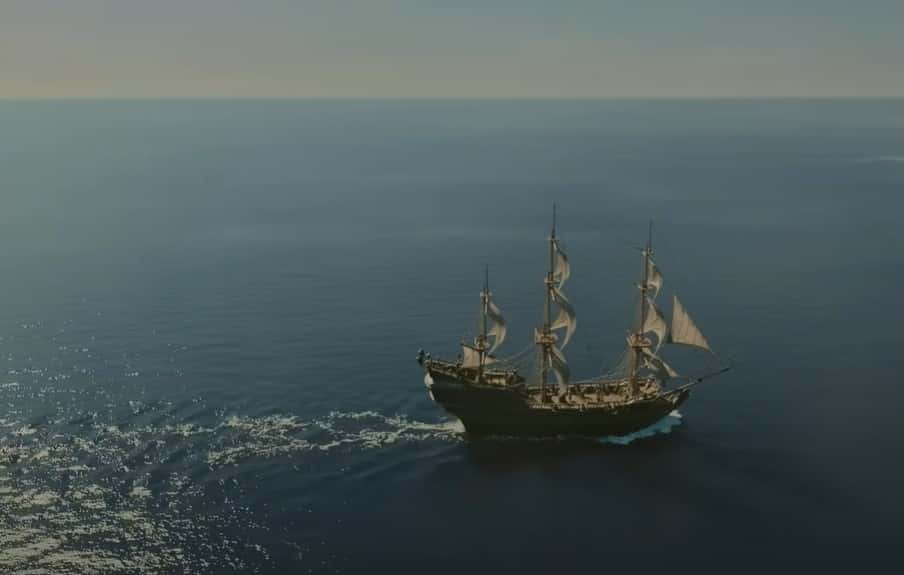 Our Flag Means (2022-), HBO Max
Our Flag Means (2022-), HBO Max
30. Vacation from Inferno
Port Royal, Jamaica was a popular retreat for 17th-century pirates—a place where a hardworking seafarer could unwind and spend his hard-earned booty on booze, gambling, and relations. The city was so infamous, visitors called it “the Sodom of the new World,” which is ironic because on June 7, 1692, an earthquake and subsequent tsunami submerged the city completely underwater. In just two minutes, the ocean swallowed the entire pirate paradise whole.
29. Doubloons? Try Deductibles!
Some pirates qualified for health insurance! In the 17th century, Captain Henry Morgan started one of the first all-inclusive worker health plans in recorded history. Before assaulting the Panama, Morgan’s crew signed a charter which guaranteed them benefits for any injury incurred in battle. A pirate could claim 600 pieces of eight for the loss of a hand or foot, 1,800 for the loss of both legs, 200 pieces for an eye, and 2,000 for total blindness.
28. Marauder Matrimony
In pirate culture, a “matelotage” was a civil partnership between men that mirrored the bonds and benefits of holy marriage. Male pirates would cohabit, share their bounty, and name each other as the sole inheritor of their respective estates. It was one of the few lawful-economic securities that a single pirate could hope for. Although it was primarily an economic arrangement, historians argue these relationships were oftentimes romantic, based on how often matelots were found to have intercourse with each other.
27. From Gentleman to Gentleman Pirate
Born to a rich Barbadian family in 1688, Stede Bonnet was known as “The Gentleman Pirate.” Leveraging his social privilege, Bonnet duped authorities into believing he was a pirate hunter, and he used his position to attack, plunder, and burn ships himself!
 Our Flag Means (2022-), HBO Max
Our Flag Means (2022-), HBO Max
26. Can't Hold Him Down
“Black Caesar” was an African conflict chief turned slave who escaped slavery through piracy. He's famous for raiding the Florida Keys and even working with Blackbeard’s crew (It’s called #networking).
25. Live Fast, Perish Young, Leave a Pirate Bounty
The pirate career of Howell Davis was just 11 months long (from July 1718 to June 1719), in which time he gained a reputation for trickery and deception. Davis disguised himself as a legitimate privateer in order trick the commander of a Royal African Company slaving fort into dinner, where Davies held the man ransom for 2,000 pounds of gold.
24. Big Hats, Big Ballots
Compared to the landlubbers of Colonial-era Europe, pirates ran quite the progressive democracy. Most pirate captains, such as John Ward, were elected by popular vote among their crew.
23. Flank the Plank
I wouldn’t plead the plank if I were you—it’s actually a common myth about the pirate penal system! They were more likely to end you straightaway, or if you were particularly unlucky, they'd maybe kneehaul you, i.e. tie you to the back of the ship and drag you through the water!
22. Lady Raider
Mary Wolverston, Lady Killigrew, was born into the swashbuckler trade—her father was a “gentleman pirate” and Wovlerston herself married the knighted pirate Sir John IV Killgrew of Arwenack. She abetted her new husband’s piracy and appeared to enjoy it more than he did. Despite rumors, however, it looks like Wolverston mostly organized raids for her servants, rather than take on raids herself.
21. Name a More Iconic Meet Cute
The 17th century French pirate Anne Dieu-le-Veut once challenged famous swashbuckler Laurens de Graaf to a duel. Either Graaf had insulted Dieu-le-Veut or, if legend is to be believed, he had ended her husband. Impressed by her courage, Graaf dropped his guns and proposed to her. She said yes, and together they shared a lucrative piracy career in addition to three kids. What a way to start a marriage!
20. Norway but Her Way!
In the wake of the murders of her husband, son, and brother-in-law, Lady Elise Eskilsdotter reacted like any well-do-to 15th century Norwegian noblewoman: get yourself and your remaining children into the piracy business and enact your bloody revenge against your husband’s enemies, the German merchant class of Bergen.
19. Black Sam Makes Bank
According to lore, “Black Sam” Bellamy got into piracy after he fell into love with Maria Hallet, a Massachusetts maiden. Unfortunately, her parents did not approve, so he did the obvious thing: turn to a life of offense. “Black Sam” proved his worth as the richest pirate in recorded history until his ship was struck by a violent Cape Cod storm, likely ending him at the age of 28.
18. Piracy Tastes Great!
Francois l'Olonnais, a French plantation worker turned pirate, was infamous for his bloody streak. After capturing some Spanish army men, l‘Olonnais allegedly established that he was in charge by slicing open one Spanish prisoner’s chest, pulling out his heart, biting into it and telling the others “I will serve you all like, if you show me not another way” while still covered in the man's blood. Yeesh.
17. Eat Your Way Out of This
l'Olonnais came to a bloody (and fitting) end, however, when his crew lodged their ship at a Panama shore to find food. According to The History of the Buccaneers of America by Alexandre Exquemelin, natives subsequently seized, dismembered, and cannibalized l’Olonnais and his crew. Karma maybe?
16. License to Seize Booty
Not all pirates were ragtag upstarts. Some—like Sir Francis Drake—were knighted allies who acted on the orders of powerful governments. A favorite of Queen Elizabeth I, Drake plundered Spanish ships and cities on the coast of Florida in the name of the crown. He also saved the failed colonists of Roanoke Island, giving them passage on his vessel. Pirates are complicated, OK?
15. Little Orphan First Mate
Cheung Po Tsai was adopted into the trade by a 19th pirate and his wife… after they captured him from his fisherman father. Whether or not he wanted to live the pirate life, he eventually made a name for himself, leading an army of over 50,000 men. He made his hideout in a small cave that is named after him to this day.
14. #tfw the Sultan Believes in You
The Barbarossa brothers (Aruj and Hizir) sailed North Africa’s Barbary Coast in the 1500s, terrorizing European trading vessels across the Mediterranean Sea. Continuing the trend of pirates going “legit,” the Ottoman sultan commissioned Aruj to lead his naval effort on the entire Barbary Coast in 1516, a position that Hizir took after his brother’s passing. Hizir eventually earned the title of “Khair-ed-Din” and spent the rest of his days fighting Christianity on the seas.
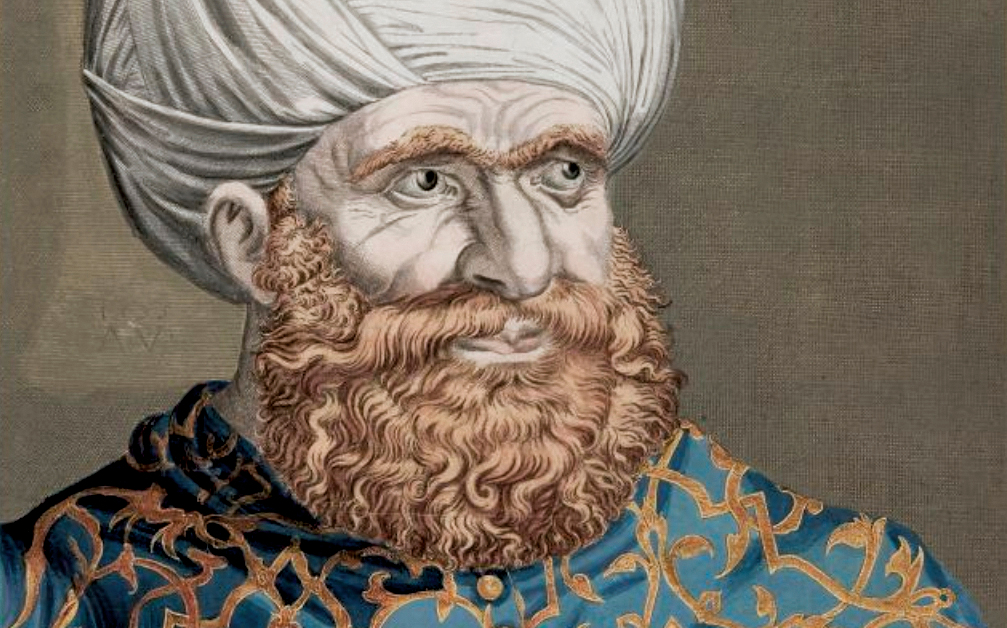 Agostino Veneziano, Wikimedia Commons
Agostino Veneziano, Wikimedia Commons
13. A Problematic Politician? Gasp!
The infamous Henry Morgan took a break from piracy to serve as the Governor of Jamaica in 1678 and again from 1680 to 1682. Ironically, his legislature passed an law, where Morgan personally assisted in the persecution of pirates.
12. Hard to Shave Off
According to legend, the British Navy needed to shoot Blackbeard five times and stab him 30 times to finally bring him down.
11. King George Plays Himself
King George III of England offered citizenship and land to the French pirate Jean Lafitte if he agreed to join their side. Lafitte said he needed a few days to think… then immediately sailed to New Orleans to warn American Revolutionaries that the English were coming. Good on ya, Lafitte!
10. It’s Important to Have Realistic Goals
Most people remember Edward “Blackbeard” Teach as a pirate, but less remember his mentor: Captain Benjamin Hornigold, aka the pirate with mixed priorities. Hornigold once took several hostages, then let them go while demanding only “some booze, a little sugar, powder, and shott.” In another incident, he overtook a Honduran merchant ship just to demand everyone turn over their hats. Why? His crew had gotten inebriated the night before, and they had all thrown their hats overboard in their revelry.
9. Aye-aye, Nerd!
William Dampier loved plundering Spanish ships almost as much as he loved science. The erudite English pirate also provided the first written instances of words like “barbecue,” “avocado," and “chopstick,” and in his adventures in Australia he was the first European to describe the "large hopping mammals" and "midget bears with a fondness for trees" that he found there.
8. European Backpackers Are Just Like That
In 1688, Dampier once voluntarily marooned himself on the coast of Thailand. He returned to England three years later with nothing to show for it but a tattooed slave prince, whom Dampier exhibited for money. So I guess you can't say he came back with nothing.
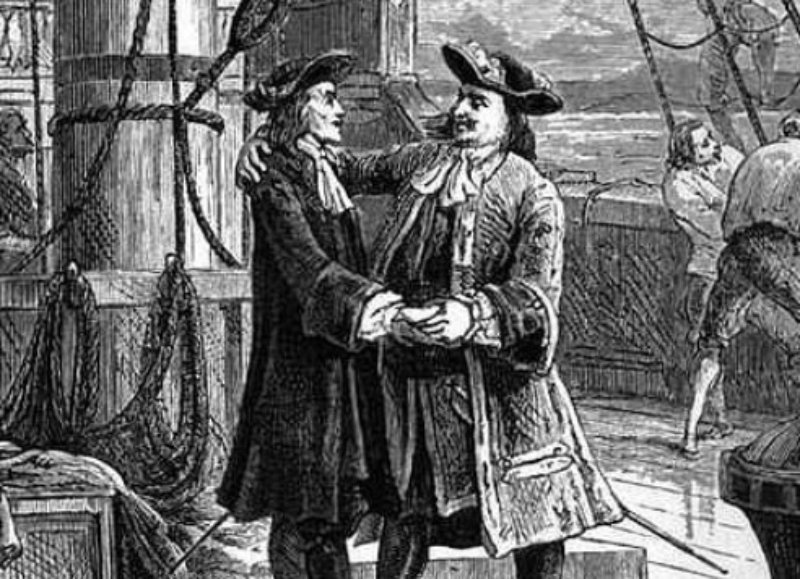 Charles Barbant, Wikimedia Commons
Charles Barbant, Wikimedia Commons
7. Captain Curfew
Bartholomew “Black Bart” Roberts ran a morally tidy ship. He made his crew sign a strict, 11-point code of conduct which forbid activities like gambling, women, staying up late, and not cleaning your room.
And he's not alone: many pirates (such as the notorious Captain Kidd) were noble, honorable, complicated men...they just had a taste for life on the sea.
6. Arrr....You Not Tired of Talking Like That?
Talk like a pirate. Now stop, because they probably did not sound like that. Why would there be a uniform accent? Pirates came from all over the world! Blame Treasure Island for all that “arr”-talk. The 1950 Disney adaptation of Robert Louis Stevenson’s novel starred Robert Newton, who played a pirate from West Country and maybe overdid it with that “arr” in every other sentence. It was that Hollywood inflection which set the standard for every pirate in movies ever.
5. From House of Ill Fame to Buccaneering
One of the most famous pirates in Asian history is Ching Shih—a Chinese adult worker who married a pirate captain, took control of his fleet after his passing , and pursued an illustrious career that included the capture of the East India Trading company’s ship, The Marquis of Ely. At one point, she was the leader of a fleet of more than 300 ships and 20,000 to 40,000 pirates
4. I Don't Know How Shih Does It
Although she reigned as an infamously powerful pirate queen, Ching Shih gave up the seafaring life to “have it all” as a working wife and mom. In 1810, Ching Shih surrendered to the Qing Imperial Government, who let the pirate matriarch and her crew keep their loot. She settled down, married her step-son, raised their children together, and ran a successful gambling house and House of Ill Fame before she passed in bed, surrounded by her family, in 1844 at the ripe (and cool) age of 69.
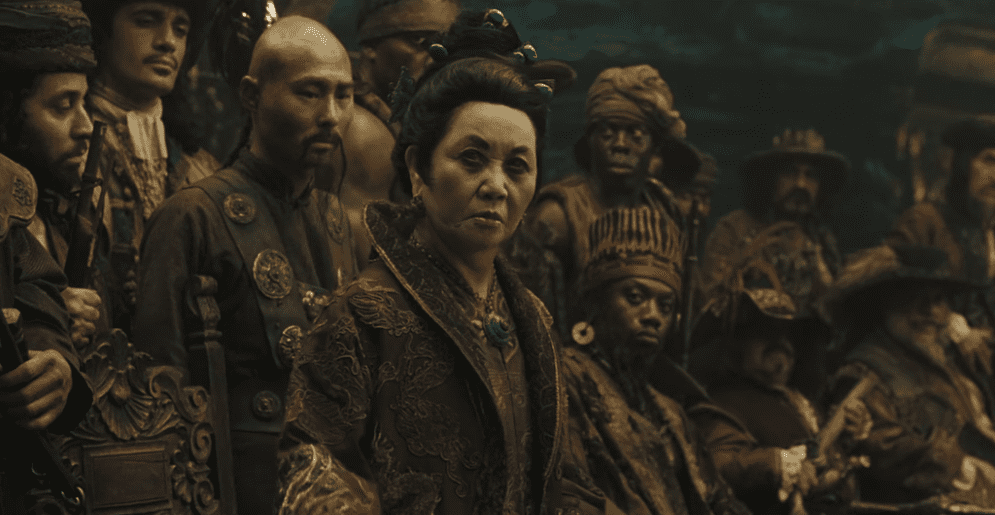 Pirates of the Caribbean: At World
Pirates of the Caribbean: At World
3. She's a Pirate, Not a Soothsayer
Anne Bonny and Calico Jack were the pirate power couple of the 18th century. However, when their ship was boarded by the king’s army men, it was Bonny who kept on fighting while Jack cowered under the deck with the rest of his men. At Calico’s execution, Bonny lovingly told her partner in life and offence, “Had you fought like a man, you need not have been hang'd like a dog." Ice cold!
 Black Sails (2014-2017), Starz
Black Sails (2014-2017), Starz
2. Princess #PowerMove
The Irish pirate queen Gráinne O'Malley, known to the English as “Grace O’Malley,” was also the head of her own Irish noble house. Her plans as both a pirate and a resistance leader against English authority in Ireland triggered the irk of Queen Elizabeth I. Eventually, O’Malley and Queen Elizabeth agreed to negotiate in person, where O’Malley scandalously blew her nose, threw her handkerchief into an open fireplace in front of the court, and declared the act as an Irish tradition. Hey, I can't say whether or not that's true, can you?
 Warrior Women-Grace O'Malley, Discovery Channel
Warrior Women-Grace O'Malley, Discovery Channel
1. Cuckholding Her Way to the Top
Before she was a pirate, Anne Bonny was married to a government informant. She apparently disapproved of her husband’s snitching, and we doubt the marriage warmed after Bonny began to hang out in pirate taverns and took John “Calico Jack” Rackham as her lover. Rackham offered Bonny’s husband money to let her go, but he refused, so the lovers ran away together. The rest, as they say, is buccaneer history.
 Black Sails (2014–2017), Starz!
Black Sails (2014–2017), Starz!
Sources: 1, 2, 3, 4, 5, 6, 7, 8, 9, 10, 11, 12, 13, 14, 15, 16, 17, 18, 19


